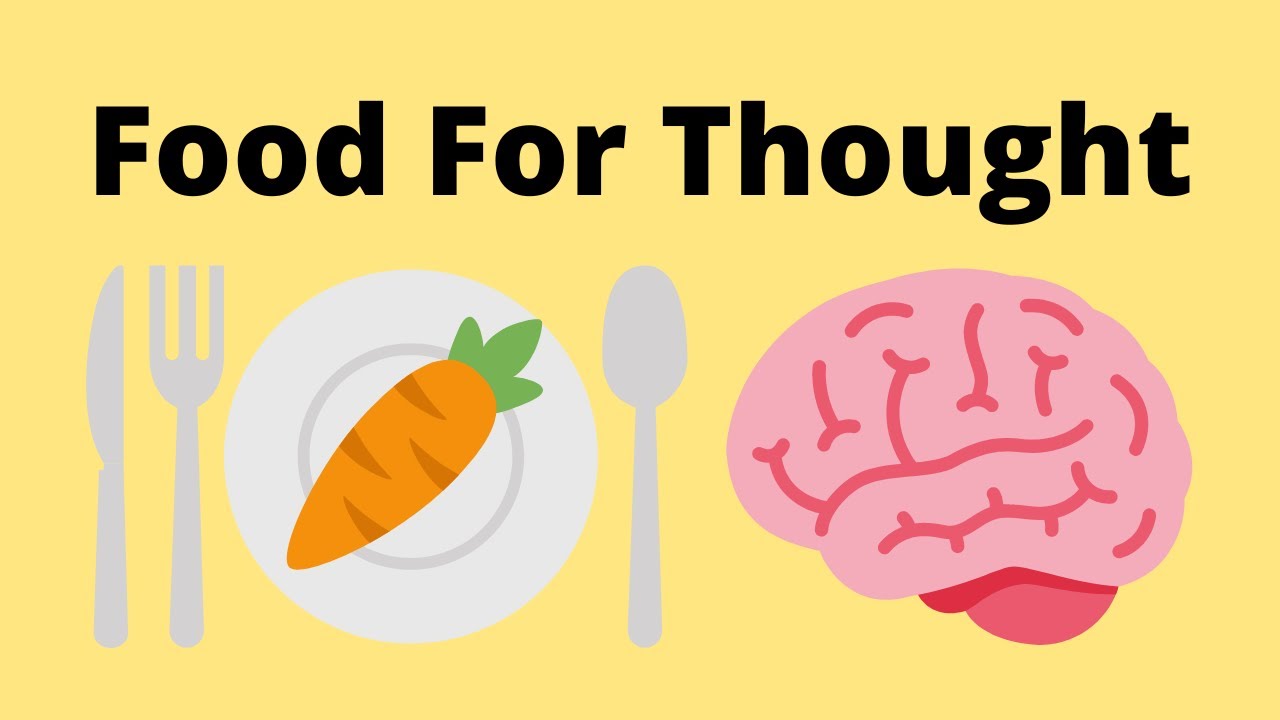Understanding The Connection Between Nutrition And Cognitive Health - Nourishing Your Brain
In this article, we will be understanding the connection between nutrition and cognitive health and discuss how dietary changes can positively impact brain function. Nutrition plays a crucial role in maintaining and improving cognitive health.
Author:James PierceReviewer:Karan EmeryMar 16, 20231 Shares208 Views

In this article, we will be understanding the connection between nutrition and cognitive healthand discuss how dietary changes can positively impact brain function. Nutrition plays a crucial role in maintaining and improving cognitive health.
It provides the necessary fuel and nutrients to the brain, allowing it to function optimally. Research has shown that a balanced and healthy diet can improve memory, attention, and overall brain function.
On the other hand, a diet lacking in nutrients can lead to cognitive decline and an increased risk of cognitive disorders such as dementia and Alzheimer's disease.
The Role Of Nutrition In Cognitive Health - Understanding The Connection
The role of nutrition in cognitive health is essential to understand as it affects the brain's structure and function.
Studies have shown that a healthy diet positively impacts cognitive performance, while a poor diet can lead to cognitive decline and an increased risk of cognitive disorders such as dementia and Alzheimer's disease.
One critical nutrient for cognitive health is omega-3 fatty acids. These essential fatty acids are found in foods such as fatty fish, nuts, and seeds.
Omega-3s are critical for brain development and function, and a deficiency in these nutrients has been linked to depression, memory loss, and cognitive decline.
Another important nutrient is choline, found in eggs, lean meats, and cruciferous vegetables. Choline is necessary for proper brain development, and a deficiency can lead to memory loss and cognitive decline.
Antioxidants such as vitamins C and E, and beta-carotene found in fruits and vegetables, help protect the brain from oxidative stress and inflammation, which can lead to cognitive decline.
B vitamins such as folate, vitamin B12, and vitamin B6 are necessary for proper brain function and development.
Deficiencies in these vitamins can lead to cognitive decline and memory loss. A healthy diet consisting of whole foods, fruits, vegetables, lean proteins, and healthy fats is essential for maintaining cognitive health.
Diets high in processed foods and added sugars have been linked to cognitive decline and an increased risk of cognitive disorders. Research has also shown that specific diets, such as the Mediterranean diet and the DASH diet, may be beneficial for cognitive health.
These diets emphasize whole foods, healthy fats, lean proteins, and fruits and vegetables and have been associated with improved cognitive function and a reduced risk of cognitive disorders.
The Science Of Nutrition And Brain Health - A Comprehensive Guide
Nutrition is an essential factor in brain health, affecting cognitive function, mood, and overall well-being. The science of nutrition and brain health is a complex and rapidly evolving field, and researchers are continually uncovering new insights into how diet impacts the brain.
One crucial factor in the science of nutrition and brain health is the gut-brain axis. This term refers to the bidirectional communication between the gut microbiome and the brain.
The gut microbiome is the community of microorganisms that live in the digestive tract and play a crucial role in regulating many aspects of health, including brain function.
Research has shown that the gut microbiome can influence cognitive function and mood through a variety of mechanisms, including the production of neurotransmitters, immune signaling, and inflammation.
A healthy and diverse gut microbiome, supported by a diet rich in fiber and fermented foods, may help to promote optimal brain function. Another important factor in the science of nutrition and brain health is the role of specific nutrients.
For example, omega-3 fatty acids found in fatty fish, nuts, and seeds are critical for brain development and function. These essential fatty acids have been linked to improved cognitive function, memory, and mood.
Other important nutrients for brain health include choline, found in eggs, lean meats, and cruciferous vegetables; antioxidants such as vitamins C and E, and beta-carotene found in fruits and vegetables; and B vitamins such as folate, vitamin B12, and vitamin B6.
A healthy diet consisting of whole foods, fruits, vegetables, lean proteins, and healthy fats is essential for maintaining cognitive health. Diets high in processed foods and added sugars have been linked to cognitive decline and an increased risk of cognitive disorders.

Food for Thought: Connections Between Nutrition and Brain Health, Presentation
Understanding The Connection Between Nutrition And Cognitive Health - Nourishing Your Brain
The connection between diet and cognitive health is increasingly recognized as critical for optimal brain function and overall well-being. Nourishing your brain with a healthy diet can help to support cognitive function, memory, and mood, and reduce the risk of cognitive decline and disorders.
One essential nutrient for brain health is omega-3 fatty acids. These essential fatty acids are found in foods such as fatty fish, nuts, and seeds and are critical for brain development and function. Studies have linked omega-3 intake to improved cognitive function, memory, and mood.
Another important nutrient for brain health is choline, found in eggs, lean meats, and cruciferous vegetables. Choline is necessary for proper brain development and function and a deficiency can lead to memory loss and cognitive decline.
Antioxidants such as vitamins C and E, and beta-carotene found in fruits and vegetables, help protect the brain from oxidative stress and inflammation, which can lead to cognitive decline.
B vitamins such as folate, vitamin B12, and vitamin B6 are also necessary for proper brain function and development. Deficiencies in these vitamins can lead to cognitive decline and memory loss.
In addition to specific nutrients, the overall quality of the diet is critical for brain health. Diets high in processed foods and added sugars have been linked to cognitive decline and an increased risk of cognitive disorders.
In contrast, diets rich in whole foods, fruits, vegetables, healthy fats, and lean proteins are associated with improved cognitive function and reduced risk of cognitive decline.
Research has also explored the potential of specific diets, such as the Mediterranean diet and the DASH diet, to promote brain health.
These diets emphasize whole foods, healthy fats, lean proteins, and fruits and vegetables and have been associated with improved cognitive function and a reduced risk of cognitive disorders.
People Also Ask
What Are The Best Foods For Cognitive Health?
Foods that are high in omega-3 fatty acids, choline, antioxidants, and B vitamins are essential for cognitive health.
Can Nutrition Affect Brain Function And Mood?
Yes, nutrition can affect brain function and mood. A healthy diet that includes a variety of nutrient-dense foods can support cognitive function, memory, and mood, and reduce the risk of cognitive decline and disorders.
How Does The Mediterranean Diet Affect Cognitive Health?
The Mediterranean diet, which is rich in whole foods, healthy fats, lean proteins, and fruits and vegetables, has been associated with improved cognitive function and a reduced risk of cognitive disorders.
What Role Does The Gut Microbiome Play In Cognitive Health?
The gut microbiome plays a crucial role in cognitive health by influencing brain function and mood through a variety of mechanisms, including the production of neurotransmitters, immune signaling, and inflammation.
Conclusion
Hope you understand understanding the connection between nutrition and cognitive health. A healthy and balanced diet can positively impact brain function, while a diet lacking in nutrients can lead to cognitive decline and an increased risk of cognitive disorders.
It is essential to prioritize a diet that includes a variety of fruits, vegetables, whole grains, lean protein, and healthy fats to provide the necessary fuel and nutrients for the brain.
By making dietary changes and prioritizing nutrition, individuals can improve their cognitive health and overall well-being.

James Pierce
Author

Karan Emery
Reviewer
Latest Articles
Popular Articles
